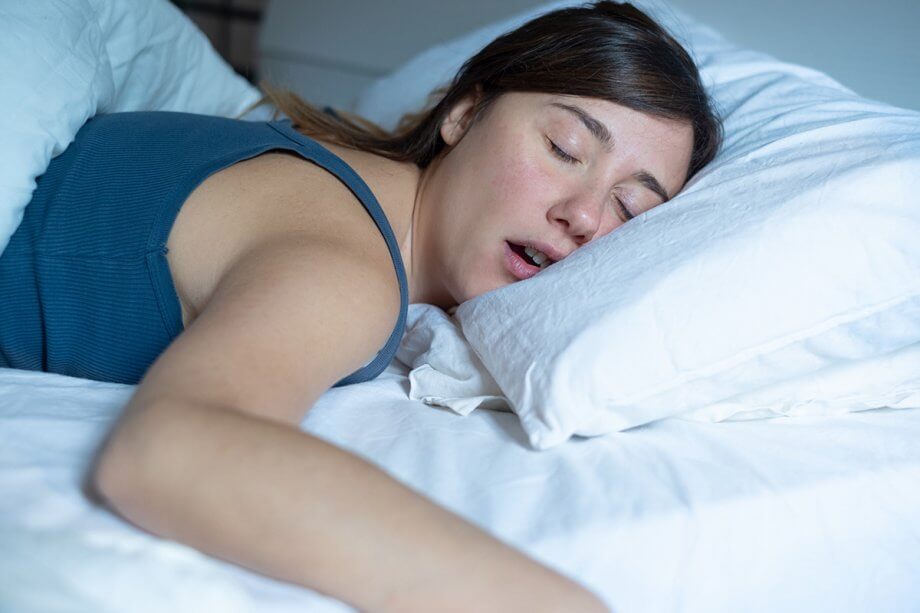Obstructive sleep apnea is estimated to affect roughly 15 to 30% of men, and 10 to 15% of women. Caused by relaxing throat muscles and tissues when you’re asleep, obstructive sleep apnea is a risk factor for myriad health conditions and diseases. Left untreated, sleep apnea may increase your risk of coronary artery disease, heart failure, heart attack, heart arrhythmia, and stroke. Less severe, but nonetheless disruptive side effects of sleep apnea (some of which are also symptoms) include daytime fatigue, difficulty concentrating, and headaches. Read on for symptoms that you may have sleep apnea.
What is Chronic Obstructive Sleep Apnea?
Obstructive sleep apnea syndrome (OSAS) is a sleep breathing disorder manifested by complete (apnea) or partial (hypopnea) obstruction of the upper airway, which often remains undiagnosed and untreated. These episodes can lead to sleep fragmentation and hypoxia. OSAS predominantly affects 26% of individuals between 30 and 70 years in the U.S.
Symptoms of Sleep Apnea Your Partner or Family May Notice
Most of the time, your partner or a family member will notice symptoms of obstructive sleep apnea before you. They may report that while asleep you exhibit the following symptoms:
- Loud snoring
- Pauses when breathing
- Gasping for air when breathing
- Mouth breathing
- Frequent tossing and turning while sleeping
If a friend or loved one notifies you of any of these symptoms, it’s best to see a physician as soon as possible. Upon confirmation of obstructive sleep apnea, your physician will refer you to a dentist for treatment.
Obstructive Sleep Apnea: Symptoms You Shouldn’t Ignore
Unfortunately, most cases of obstructive sleep apnea go undiagnosed. However, because the condition puts you at risk for serious health consequences, you should pay attention to the following symptoms:
- Dry or sore throat upon waking
- Excessive sleepiness during the day
- Problems with memory
- Mood changes (depression, irritability, anxiety)
- Being awakened by your own snoring
- Choking when sleeping
- Waking up gasping
- Diminished sex drive
- Difficulty concentrating
The likelihood of developing obstructive sleep apnea is increased if you are male, overweight, smoke, suffer from high blood pressure (hypertension) or diabetes, have a family history of sleep apnea, or have asthma.
Heavy drinkers may be more prone to sleep apnea, as are those with conditions such as hypothyroidism. Individuals with a large neck circumference are at increased risk. Finally, those with a naturally narrow airway, or large tonsils are also at increased risk for obstructive sleep apnea.
What Treatments are Available for Obstructive Sleep Apnea?
Treatment often begins with self help, Lifestyle changes and conservative treatment This includes addressing any of the underlying causes of sleep apnea. Those who are overweight should try to lose weight. Smokers should stop smoking immediately. Patients with high blood pressure or diabetes must take medication as prescribed.
There is good news for those who are diagnosed with obstructive sleep apnea. Because the cause is a restricted airway, opening the airway treats the condition in most cases. A custom oral appliance provided by your dentist that you wear while you sleep can keep your airway open by positioning the lower jaw in a slightly forward position.
In severe cases, patients with obstructive sleep apnea may need to be treated with a CPAP (continuous positive airway pressure) mask & medical device. Referral to a specialized oral surgeon is a last resort. Dr David Furnari and Scarsdale Dental Group have Teamed with Chase Sleep Dental to provide our Patients with prescribed State of the Art at home and institutional Sleep studies. Once diagnosed, Sleep Apnea treatments can be covered by Medicare up to 80%.
Diagnosed with Obstructive Sleep Apnea? Book an Appointment at Scarsdale Dental Group
Scarsdale Dental Group offers state-of-the-art, FDA-cleared oral appliances for the treatment of obstructive sleep apnea. If you’ve been diagnosed with obstructive sleep apnea, book an appointment today by calling 914-723-4707 . You may also book an appointment online.


